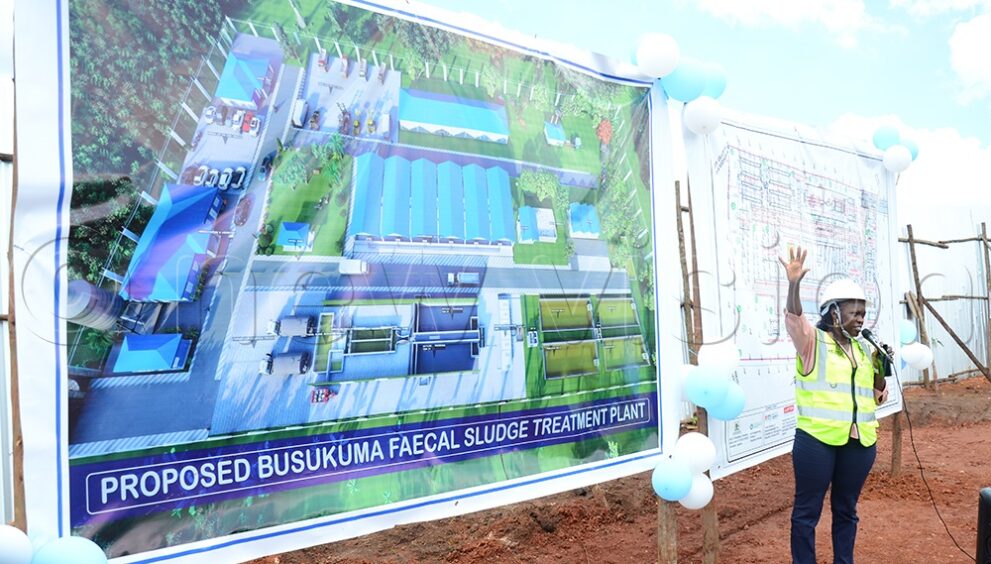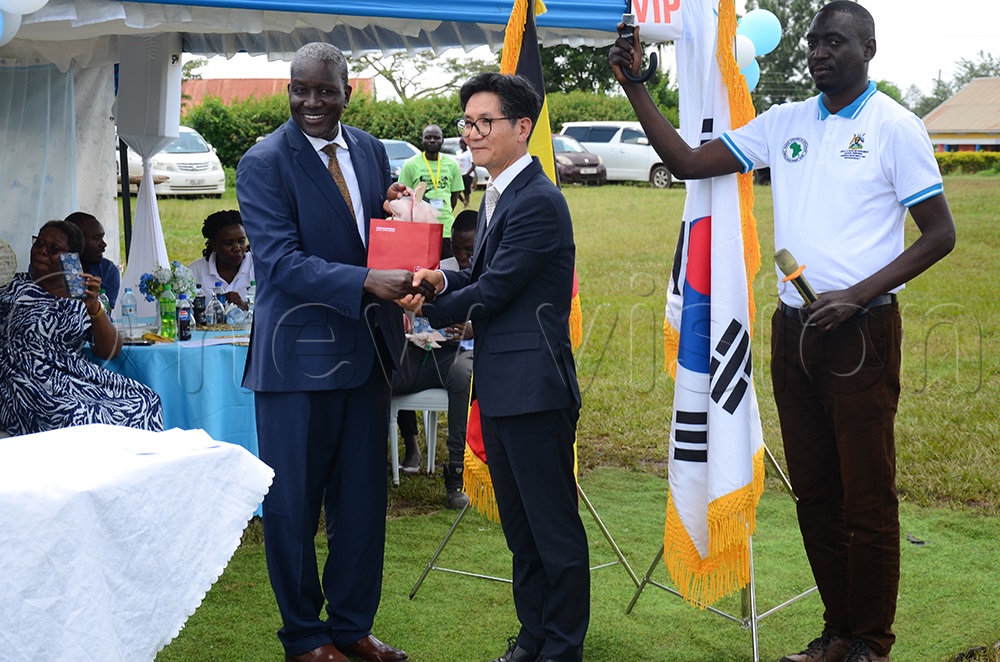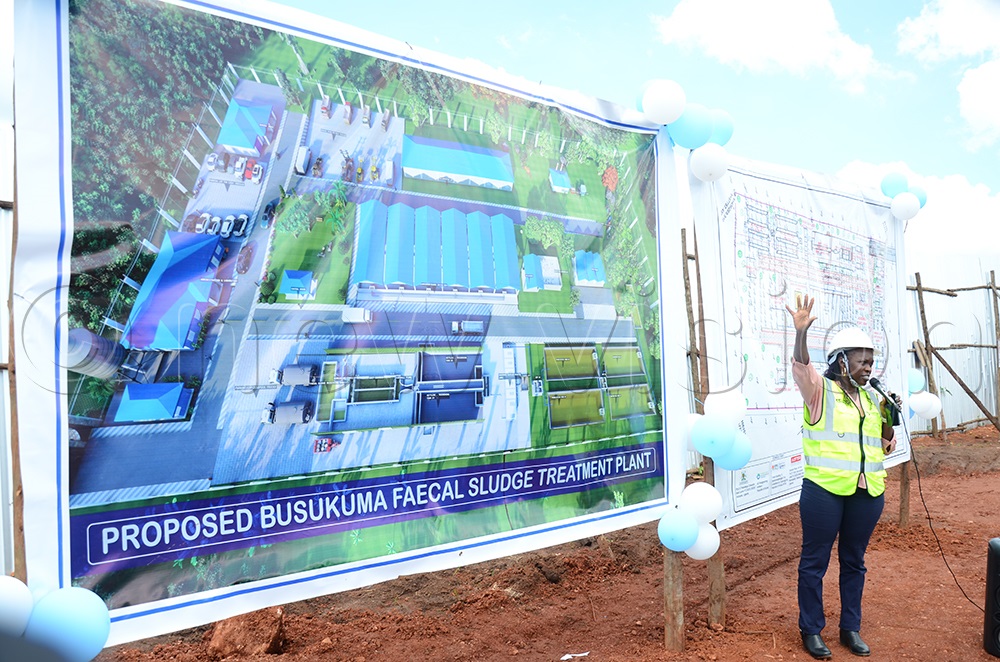Government Launches UGX 12 billion Faecal Sludge Treatment Plant in Wakiso

The government, in partnership with Korea, has launched a UGX 12 billion faecal sludge treatment plant in Wakiso District to address sanitation challenges in urbanizing areas. The facility, to be completed in 18 months, will process 60 cubic meters of waste daily, enhancing public health and supporting agriculture through treated waste reuse.

Dr. Alfred Okot Okidi, the permanent secretary who represented the Minister of Water and Environment and Korean Ambassador, HE Park Sung-soo, exchanging gifts at Namulonge. (Photo by New Vison)
In a strategic move to enhance sanitation and improve public health, the Government has announced plans to construct a UGX 12 billion faecal sludge treatment plant in Namulonge Parish, Busukuma Division, Nansana Municipality, Wakiso District.
The proposed facility, expected to be completed within 18 months, will have the capacity to treat 60 cubic meters of faecal sludge daily, equivalent to over ten trucks. This development seeks to address the escalating challenge of faecal sludge management in the rapidly urbanizing areas of Wakiso and Kampala.
“The construction of this treatment plant is a significant milestone in our efforts to improve sanitation and public health in Nansana. As the area expands rapidly, it is crucial to provide a safe and healthy environment for urban dwellers,” remarked Dr. Alfred Okot Okidi, Permanent Secretary of the Ministry of Water and Environment, during the groundbreaking ceremony held on Tuesday, November 26, 2024. Dr. Okidi represented the Minister for Water and Environment at the event.
The project is jointly funded by the Government of the Republic of Korea, through the Korea Environment Corporation (K-eco), and the Government of Uganda. It will be executed by Youngjin Construction Incorporation as the project contractor.
Korean Ambassador to Uganda, H.E. Park Sung-soo, emphasized the project’s potential benefits, stating, “The treatment plant will not only enhance sanitation but also provide a reliable source of treated wastewater for irrigation and other non-potable purposes. Furthermore, treated waste can be transformed into compost for agricultural use, contributing to environmental conservation and addressing climate challenges arising from urbanization.”
He further reiterated Korea’s commitment to supporting Uganda in developing resilience against environmental and climate change challenges, focusing on improved sanitation and ecosystem protection.
Dr. Okidi highlighted the urgency of addressing poor sanitation, noting, “Only 41% of Ugandans have access to safely managed sewage systems, with ventilated improved pit latrines being the most common solution. The majority, particularly in urban slums, lack access to adequate toilet facilities.”

Artistic impression of the sh12b sludge under construction in Namulonge Busukuma in Nansana Municipality. (Photo by New Vision)
Ritah Nakubula, Deputy Mayor of Busukuma Division, welcomed the initiative, stating, “This project will not only address sanitation challenges but also boost agriculture and create employment opportunities. It marks a significant step in improving urban sanitation and reducing risks associated with waterborne diseases like cholera and dysentery.”
The treatment plant aligns with the United Nations’ Sustainable Development Goal 6 (SDG 6), which aims to ensure universal access to safe and affordable sanitation by 2030.
Eng. Douglas Devis Kiggundu, a Ministry of Water and Environment official, expressed concern over inadequate toilet coverage, which exacerbates faecal sludge management challenges. “The lack of proper toilet facilities poses severe health risks and contributes to environmental degradation through water and soil pollution,” he noted.
According to the Uganda Bureau of Statistics (UBOS), only 34% of households in Wakiso District have access to improved sanitation facilities, leaving 66% of residents without proper toilet coverage. The new facility is expected to alleviate these challenges significantly.
This initiative represents a major step forward in enhancing public health, environmental conservation, and economic opportunities for the residents of Wakiso District.







